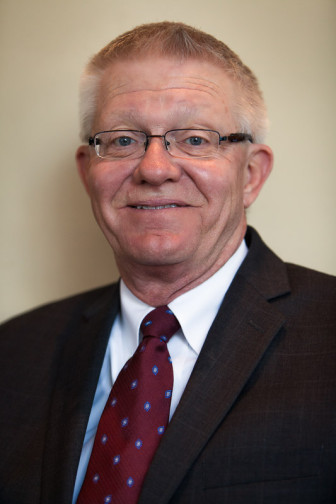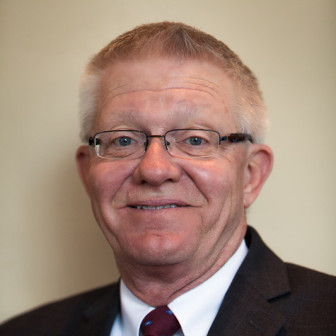 During my years on the bench, some of the best days were spent listening to cases presented by a top-notch prosecutor and countered by a defense attorney of equal caliber.
During my years on the bench, some of the best days were spent listening to cases presented by a top-notch prosecutor and countered by a defense attorney of equal caliber.
Unfortunately, those days didn’t happen often enough. Occasionally, both sides seemed unprepared or sleepwalking through the case.
Far too often the prosecutor — armed with a thick investigative file and bolstered by years of trial experience — could argue the case inside and out while the defense attorney struggled to help a new defendant she had met for the first time just before the hearing. The defense was also hamstrung by having access to only the most basic information about the alleged offense.
During a recent meeting of a group of judicial advisers to the National Juvenile Defender Center (NJDC), I was reminded yet again of the many challenges faced by defense attorneys in juvenile courts. (The NJDC is one of the four resource center partners created by the MacArthur Foundation’s Models for Change juvenile justice reform initiative. The center aims to build capacity of the juvenile defense bar, improve access to counsel and uphold the quality of representation for children in conflict with the law.)
As one of a dozen judges invited to an informal and candid discussion about the state of juvenile defense in our court systems, it became readily obvious that there are great differences in approaches to juvenile defense among states.
Some provide juvenile defense through centrally organized systems from the state level. Others rely upon individual county governments to do so, but all use both publicly employed defenders as well as private attorneys appointed for individual cases. Some private lawyers are paid while others are required to provide legal services pro bono. Some states require mandatory training and/or certification for all attorneys appearing in juvenile court while others require nothing more than a law license.
Consistency around juvenile defense is lacking, and practice varies by state, county and individual courtroom. No one perfect system was discovered.
In juvenile courtrooms, it’s not uncommon for the second youngest person in the room to be the lawyer representing the youngest person in the room. Juvenile cases often are assigned to the newest attorney on the payroll.
If that attorney has been sufficiently trained in juvenile law as well as the developmental science now understood and championed by foundations, law schools and OJJDP, that’s not a problem. The NJDC has resources to guide the education of any attorney practicing in juvenile court. Their standards for practice and upcoming certificate program are great tools to inform continuing legal education.
In addition to training, improved defense for juveniles depends in part on increased public funds. Prosecutors often respond to defense staffing requests by referring to the even greater case numbers in their offices.
A significant difference is that prosecutors have greater access to county boards and their budgets, can divert cases internally and have sole authority to charge. Defenders must represent every case assigned to them without discretion to refuse.
Staffing issues extend beyond the number of attorneys. Juvenile defenders need investigators, support staff, social workers and mitigation experts. Too often, public defenders receive too little — or nothing — in regard to these needs.
And public defenders are uniformly paid less than prosecutors. Appointed private attorneys sometimes must work for free or receive as little as $25 per hour for their services — not enough to cover office overhead. Compensation has another facet: Defenders are not compensated for their juvenile expertise and must transfer to another assignment to receive adequate raises in salary.
It takes time to develop an expert defender. She must consider the facts of every case, and in addition to protecting the rights of the juvenile, she must weigh the opportunities for diversion or a plea. She must argue the unique characteristics of the individual child.
The defender is the court stakeholder who MUST know and understand adolescent development science, evidence, trauma-informed therapies and the local availability of treatment modalities. An effective juvenile defender makes the justice system work in determining guilt as well as advocating for the consequence that will be most likely to improve public safety.
We need to advocate for juvenile defense attorneys in those arenas that can supply the support needed — to state legislators, governors, county boards and court systems.
The judges at the NJDC meeting were very experienced jurists. They remarked on the length of time it has taken to understand the frailty of eyewitness identification and its mistakes — the injustice to individual defendants who have languished in prison for decades. The public perception of a justice system that ignored 40 years of science before allowing testimony about eyewitness mistakes undermines confidence in our justice system. We cannot afford to ignore juvenile development science today.
We must have defenders who are educated and equipped to adequately defend children in conflict with the law. Just remember that the Supreme Court decisions in Gault, Roper, Graham and Miller exist because defenders were willing and able to advocate for individual juvenile clients.
Judge George W. Timberlake, Ret., is chair of the Illinois Juvenile Justice Commission, and an alternate member of Federal Advisory Committee on Juvenile Justice. He was a trial court judge for 23 years before retiring as chief judge of Illinois' 2nd Circuit. He is also a member of the Illinois Models for Change Coordinating Council, the Illinois Juvenile Justice Leadership Council, the Redeploy Illinois Oversight Board and the board of the Juvenile Justice Initiative, a statewide advocacy coalition.
